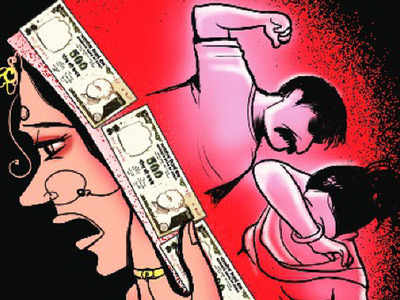The Supreme Court on Tuesday has observed that, conviction under Section 304B of the Indian Penal Code can be made only if the woman was subjected to cruelty or harassment by her husband or his relatives which must be for or in connection with any demand for dowry, soon before her death.
The bench comprising of Justice Sanjay Kishan Kaul and Justice KM Joseph in Girish Singh vs. State of Uttarakhand affirmed it is not any cruelty that becomes the subject matter of the provision, but it is the cruelty or harassment for or in connection with, demand for dowry only.
To convict the accused under Section 304B IPC, the High Court had referred to the evidence that the accused harassed the deceased by :
- Asking her to provide liquor in the glass
- After taking liquor, in the state of intoxication, he used to ask her to sleep with him
- On her refusal, it was found that she was subjected to mental cruelty
Disapproving this approach, the bench said:
The High Court was in clear error in taking into consideration the evidence relating to harassment by the second accused on the basis that he, in the state of intoxication, asked her to sleep with him, and on that basis, she was subjected to mental cruelty. The said evidence is totally irrelevant and foreign to the scope of a trial for the offence under Section 304B of the IPC. It does not relate, at all, to the demand for dowry.
While setting aside the concurrent conviction, the bench also observed that the appellate court was duty bound in the case of an appeal by the accused to reappraise the evidence.
A right of appeal is the creature of statute. Unless appellate power is expressly limited by additional conditionalities, the Appellate Court has power or rather is duty bound in the case of an appeal by the accused to reappraise the evidence. Even in an appeal against acquittal, the appellate court has power of reappraisal of evidence though subject to the limitation that interference would be in a case where the Trial Court’s verdict is against the weight of evidence which is the same thing as a perverse verdict. We need not catalogue the circumstances which are well-settled.
Adding further the apex court said:
Truth in a criminal trial is discovered by not merely going through the cross-examination of the witnesses. There must be an analysis of the chief examination of the witnesses in conjunction with the cross examination and the re-examination, if any. The effect of what other witnesses have deposed must also enter into consideration of the matter. On the one hand, the laudable object underlying Section 304B of the IPC is not to be lost sight of. On the other hand, it is equally important that the Appellate Court must not be oblivious to the fact what it is duty bound to find is whether an offence is committed or not and such a pursuit also would embrace the duty of the court to apply its mind to the evidence as a whole and arrive at conclusions as to facts and inferences therefrom as well. After all, at stake for the accused are, priceless rights to liberty, reputation and the right to life, not only of himself but also his family members. The Law Giver, has contemplated that the High Court will be the final arbiter of facts and even of law. The jurisdiction of the Apex Court was deliberately limited to the extra ordinary powers it enjoys under Article 136 of the Constitution of India unless it be exercised under other provisions. What we wish to emphasise is that the cause of justice and the interest of litigants would be better subserved if the Appellate Court takes a closer look, in particular of the cross-examination of the witnesses and analyse the same.
CLICK HERE TO READ FULL JUDGEMENT

What is Section 304B Dowry Death in The Indian Penal Code?
- Where the death of a woman is caused by any burns or bodily injury or occurs otherwise than under normal circumstances within seven years of her marriage and it is shown that soon before her death she was subjected to cruelty or harassment by her husband or any relative of her husband for, or in connection with, any demand for dowry, such death shall be called “dowry death”, and such husband or relative shall be deemed to have caused her death. Explanation.—For the purpose of this sub-section, “dowry” shall have the same meaning as in section 2 of the Dowry Prohibition Act, 1961 (28 of 1961).
-
Whoever commits dowry death shall be punished with imprisonment for a term which shall not be less than seven years but which may extend to imprisonment for life.
ALSO READ –
http://voiceformenindia.com/in-the-law/book-girls-father-for-giving-dowry/
Join our Facebook Group or follow us on social media by clicking on the icons below
If you find value in our work, you may choose to donate to Voice For Men Foundation via Milaap OR via UPI: voiceformenindia@hdfcbank (80G tax exemption applicable)






























